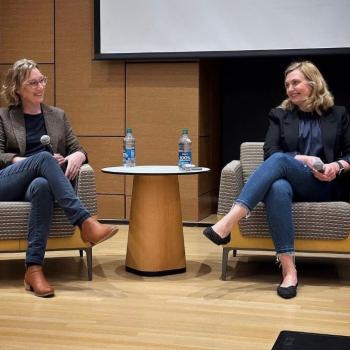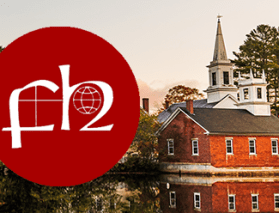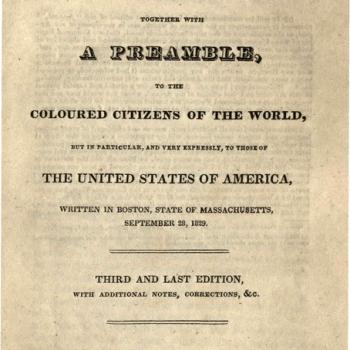I do not attend very many conferences. There are several reasons for this. Mostly, I like staying home. My university does not have a very generous travel budget, and while I can get a surprising amount of work done in airports and on airplanes, I can write more at home. Preparing conference presentations, moreover, sometimes detracts from larger projects.
There are several exceptions to this rule, because there are several conferences that I love to attend (there are many other wonderful organizations and conferences, so no slights intended). My academic homes include the Mormon History Association and the American Society of Church History. The former provided unimaginable hospitality and sources of counsel when I began doing research on the history and present religious culture of Mormonism. I cannot imagine any history conference matching the passion and engagement of the MHA. I also have attended many meetings of the ASCH, which offers a welcome respite from the larger frenzy of the American Historical Association.
The Conference on Faith and History, which held its biennial meeting this past weekend in Grand Rapids, is also very special to me. (Chris has already posted reactions from several friends of The Anxious Bench in attendance.).
Fifty years after its founding, the CFH — according to the organization’s website — is “a community of scholars exploring the relationship between Christian faith and history.” For the most part at least, CFH members are both historians and believing Christians.
While the CFH’s roots are evangelical and Reformed, and while evangelicalism remains an important part of the organization’s identity, the CFH “welcome[s] members from a variety of Christian traditions around the world.” In recent years, Catholics, Latter-day Saints, and Orthodox Christians have attended and presented at the CFH, as have many Protestants who do not think of themselves as “evangelical.” I hope we make them feel welcome.
Most CFH members teach at colleges and universities, or are preparing to do so, but that’s not exclusively the case. In recent years, the CFH has made a particular effort to encourage teachers to join and attend, and at this year’s conference, I met several longtime and new members who teach at secondary schools. I hope we make them feel welcome.
One of the major highlights for me was incoming CFH president — and Anxious Bench blogger — Beth Barr’s address. If you missed the conference and want previews of Beth’s address, see her posts here, here, and here. Before proceeding to discuss medieval Christianity’s lack of attention to the Pauline household codes and prohibitions on female leadership, she observed that there are far, far more women attending and presenting at the CFH now than just a decade ago. I hope longtime CFH members make them feel welcome.
Many academic organizations are attempting to broaden their memberships, paying close attention to the fact that women and non-white scholars have often felt marginalized or simply out of place at their conferences. In the case of the CFH, we want to more fully resemble the Body of Christ.
Margaret Bendroth’s plenary address contained wisdom on many points, including on the need for historians who write and speak in ways that will connect with their readers and listeners. I was particularly struck, however, in her gentle encouragement that we treat people with humanity or — put more in the language of faith — with the love of Christ. She encouraged those in attendance to not act the way many scholars act at academic conferences, to not shaft the person in front of them in an attempt to meet a more prominent scholar ten feet away. Some corners of academic might breed narcissism, but we are poor Christians when all we can think about is ourselves.
At the conclusion of her address, Beth Barr stated that the CFH is a place where she feels a strong sense of belonging. I too feel that way. I support and cherish the Conference on Faith and History because its members encourage me to think and act Christianly.













